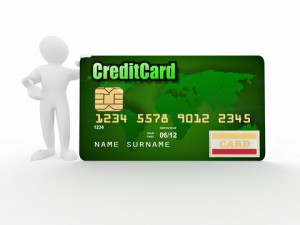 There are two financial varieties of small business credit cards. The first is one requiring a personal guarantee from the owner of the business, and the second is one that can be obtained by the business on the strength of its own merit.
There are two financial varieties of small business credit cards. The first is one requiring a personal guarantee from the owner of the business, and the second is one that can be obtained by the business on the strength of its own merit.
Once the decision has been made if the business credit card requires a personal guarantee or not, then you can check out options as to percentage rate, promotions, or reward programs that are offered by different banks, in order to get the best small business credit card for your organization.
No Personal Guarantee
A personal guarantee means that the owner of the business guarantees that the business credit card payments will be made. This card is attached to and based on the owner’s credit history. If payments aren’t made, the owner promises to make the payments personally. If payments are late, then the owner’s credit history will take the hit.
Without a personal guarantee the credit card is based on and reported to the business credit history. The business is responsible for the payments and the bank can’t come back on the owner’s financials.
In order for a small business to get a credit card without a personal guarantee, there are several steps to take. Some of these steps you may have already completed, but many small businesses skipped straight to opening without actually setting up a business. This is especially true of home-based businesses or those who are freelancing.
It is important to note that the steps will take some time, often as much as a year to complete. You may need to get an interim small business credit card with a personal guarantee while you work towards completing these steps. To get a small business credit card without a guarantee you have to legally establish a business, and then establish some form of business credit before you apply for a credit card.
You can start this process long before you open a business or if you are already in business and have completed a few of the steps then just finish the process. If you don’t need a business card right now, then you might consider starting the process so that the card is available if you ever need it.
Here are the steps to separating your business from your personal financials so that you can get a business credit card without a personal guarantee:
- Incorporate Your Business – the business needs to be incorporated or your need to form an LLC. To view the options for incorporation or why you would form an LLC you can check online sites or speak to a lawyer. Without incorporating or an LLC, the business and personal finances are one and the same. This means any business loss or profit is reported on personal tax returns.
- Get an Employer Identification Number (EIN) – Once you have legally filed as a business, get an employer identification number in the business name. The EIN comes from the IRS. It makes it possible for you to file business tax returns that are separate from the owner’s personal tax return. An EIN is like having a social security number for your company. It proves to vendors and lenders that you are an established business and is an important step in getting a small business credit card without a guarantee.
- Get A Business Bank Account – Now that you have a legal name, and an EIN, open a bank account in the business name just as it appears on the corporate paperwork. Use the bank account to pay for business items and to deposit company monies.
- Get five merchant or trade accounts – by asking for small levels of credit, even $100, at local stationary stores for business cards, brochures, or even signs, at office supply stores, or other sources. You may be able to get the business cards cheaper online, but an online store probably won’t give you a credit account. Make sure you verify that the merchant reports payment history to credit bureaus. The whole point of doing this is to get a credit history built up under the business name.
- Check with Credit Bureaus – a few months after you established the vendor credit accounts, call and check with Experian, Equifax, and Dun & Bradstreet to ensure that they have your business listed and that the vendors have reported your payment history. The credit bureaus should be able to find you by business name or by your EIN. Track the credit reporting for a couple months. Make sure you pay the vendors early or on time.

Apply for a small business credit card after four or five months of credit reporting. You should be able to apply for and receive a business credit card under the business name. Check the bank where you have a business checking account and see what their requirements and options are for a business credit card.









